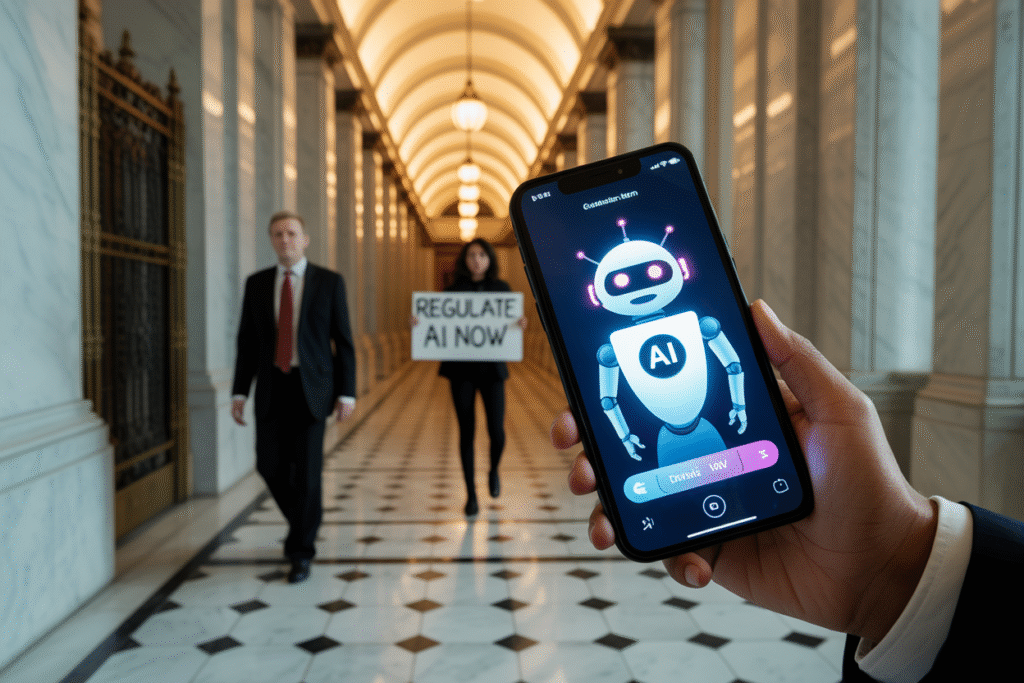Tech giants just poured millions into PACs fighting AI rules—here’s why your next paycheck, private conversation, and even your love life could hang in the balance.
Picture this: it’s Monday morning, your coffee is still steaming, and your phone buzzes with news that Silicon Valley just launched a multimillion-dollar campaign to keep AI as free-wheeling as the Wild West. The stakes? Your job, your data, and the quiet moments you share with friends or an AI companion. In the next few minutes we’ll unpack who’s paying, what they want, and why everyday people are pushing back harder than ever.
The Lobbying Blitz Nobody Asked For
While most of us were deciding between oat or almond milk, a new super-PAC called “Leading the Future” quietly filed paperwork in Washington. Backed by marquee VCs and household-name AI firms, the group has already banked eight figures.
Their pitch is simple: regulation kills innovation. Their fear is real: polls show up to 80 % of Americans want guardrails on AI ethics, job displacement, and surveillance. The math is stark—millions in campaign ads versus millions of anxious voters.
Your Paycheck on the Chopping Block
AI doesn’t just threaten factory lines anymore. Creative directors, customer-service reps, even therapists are watching algorithms audition for their roles.
The PAC argues unfettered growth equals new jobs, yet case studies from media and design houses tell a different story—teams shrinking after AI tools learn their craft in weeks. If regulation is delayed, reskilling budgets may shrink faster than headcounts.
Privacy Is Personal—Until It’s Profitable
Every chat with an AI companion, every late-night search, feeds a data lake that advertisers drool over. Without strict rules, that lake has no lifeguard.
Pro-regulation voices want consent baked into code, not buried in 10,000-word terms-of-service novellas. The PAC prefers voluntary guidelines—an honor system in an industry famous for moving fast and breaking things.
Love, Loneliness, and Lines of Code
AI companions promise comfort to the isolated, but critics warn of emotional dependency engineered by engagement metrics. Who answers when a heartbreak is monetized?
Regulators eye rules on transparency—bots must disclose they’re bots. Opponents call that a buzzkill that stifles human-like connection. The debate is no longer sci-fi; it’s on our screens and in our DMs tonight.
What Happens If We Do Nothing
Imagine a 2027 election cycle where deepfakes drown out real voices, where pink-slipped workers retrain just as the next model outmodes their new skills, where every whisper to a digital friend is stored, profiled, and sold.
The PAC’s millions aim to keep that path clear. Public pushback—petitions, town halls, viral threads—aims to reroute it. The next six months decide whose narrative wins.


